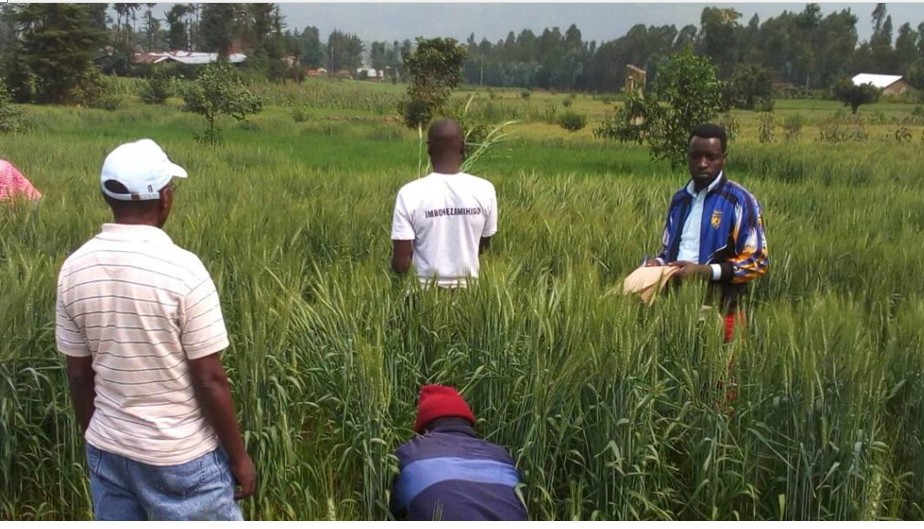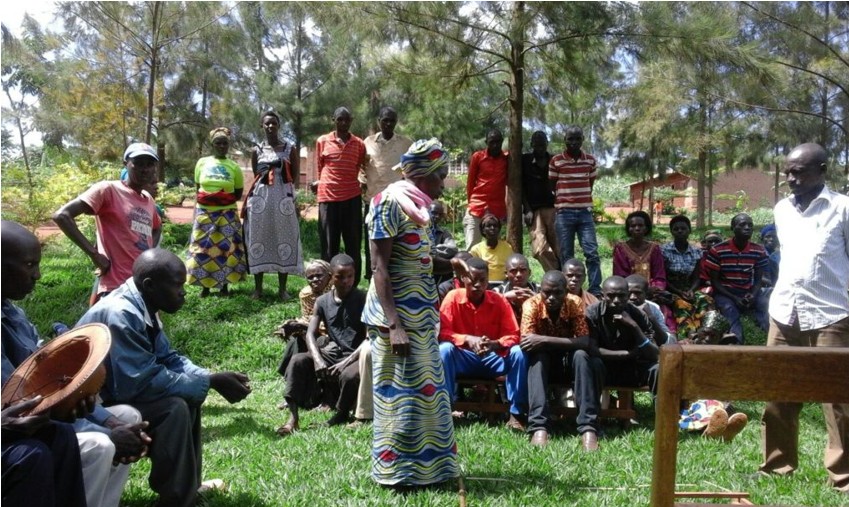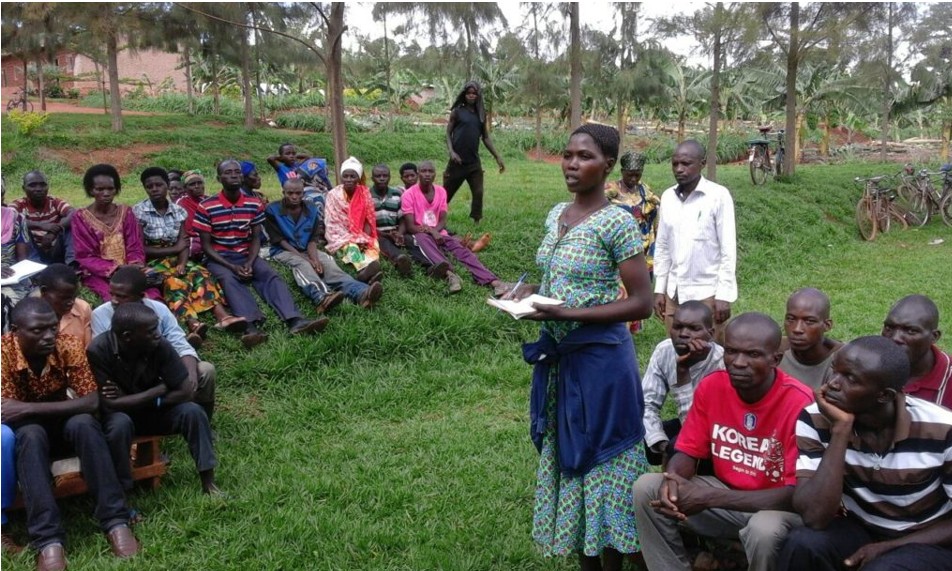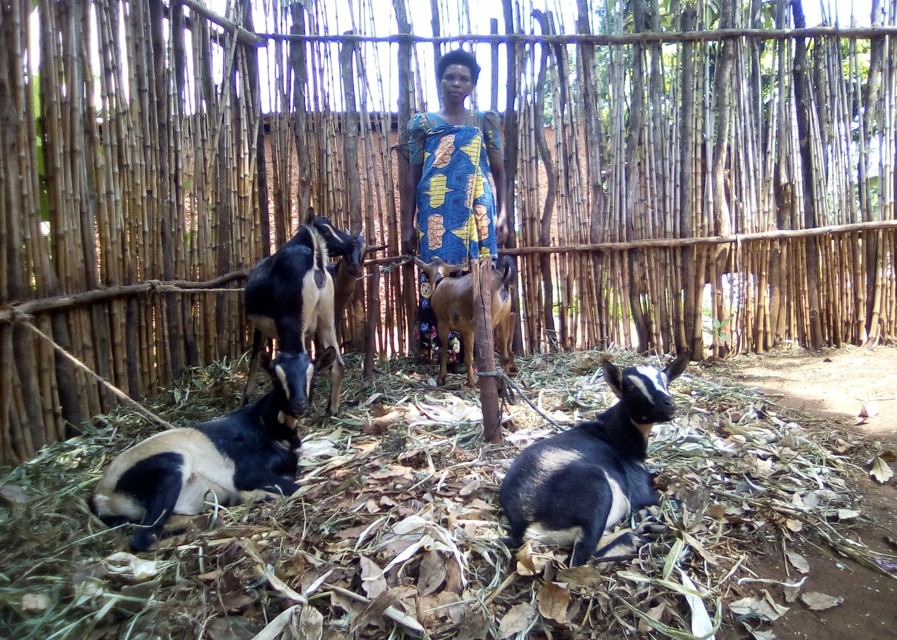Climate Change
RCID's Impact in Climate Change and Environmental Sustainability
RCID PROFILE AND UPDATED PROJECT-WEBSITE IN CLIMATE CHANGE
Supporting in the production and distribution of agroforestry and fruits for communities in Rwanda
From 2018 to 2019, the Regional Research Centre for Integrated Development (RCID) contributed to a significant initiative aimed at improving nutrition and environmental sustainability through agroforestry and fruit tree production in Rwanda. Funded by the Federal Ministry for Economic Cooperation and Development (BMZ) and supported by the International Agricultural Research for Development, this project served as a strategic intervention to promote organizational, technical, and methodological innovations in sustainable agriculture with direct benefits to poor and vulnerable populations. In this context, RCID was engaged by SOS Rwanda to build upon earlier work undertaken between 2015 and 2016, where it had successfully prepared and produced 50,000 seedlings of agroforestry and fruit tree species. RCID's role included verifying afforestation sites, identifying appropriate species for local agro-ecological zones in government-managed nurseries, and supporting the practical implementation of afforestation plans.
These efforts encompassed site cultivation, labor mobilization, application of appropriate technologies, implementation of protective measures, and long-term site management. The seedlings were distributed to targeted communities in three sectors of Gasabo District—Gatsata, Kacyiru, and Kinyinya within Kigali City. The project not only contributed to environmental restoration but also played a pivotal role in addressing malnutrition by promoting household-level access to diverse fruit sources. RCID's involvement underscored its expertise in linking environmental sustainability with food and nutrition security and affirmed its capacity to deliver community-centered interventions that align with national agroforestry and reforestation priorities.
Mid-Term Evaluation of the Forest Landscape Restoration for Improved Livelihoods in Rwanda project
World Vision Rwanda, with the support from Australian Government, is implementing a Forest Landscape Restoration (FLR) project which aims to improve food security and livelihoods for smallholder farmers (including cattle keepers) and their families in Rwanda. World Vision implements the project in collaboration with different stakeholders including the National Tree Seed Centre and the World Agroforestry Centre (ICRAF). The project is being implemented in Bugesera, Gatsibo, Kayonza, and Nyagatare districts of Rwanda with the overall goal to contribute to improved food security and livelihoods for over 11,800 smallholder farmers and cattle keepers reaching approximately 51,955 beneficiaries across Bugesera, Gatsibo, Kayonza, and Nyagatare districts, Rwanda.
RCID was contracted by World Vision from January to July 2020 to assess the project's progress, efficiency, and relevance, with a focus on improving its design and implementation for the remaining phase in 2020. The evaluation verified achievements against baseline targets, focusing on disaggregated stakeholder outcomes and gender inclusiveness. A detailed gender analysis was conducted to identify strategic entry points for gender mainstreaming across activities.
The evaluation also reviewed implementation modalities, documented lessons learned, and provided recommendations for improved impact. In addition, wildlife conservation, biodiversity enhancement, and sustainable land use practices were central to the project's goals. RCID applied GIS and mapping technologies to assess land cover changes, ecosystem restoration outcomes, and community-level biodiversity indicators. Through this assignment, RCID reaffirmed its technical leadership in landscape restoration, gender-responsive evaluation, biodiversity mapping, and conservation monitoring, supporting Rwanda's national and global commitments to forest restoration and climate resilience.
Baseline Survey - Alliance for Restoration of Forest Ecosystems in Africa (AREECA) Project in Kirehe and Nyagatare districts of Rwanda
From October 2021 to March 2022, the Regional Research Centre for Integrated Development (RCID Ltd) conducted a comprehensive baseline survey for the AREECA project in Kirehe and Nyagatare Districts, located in Rwanda's Eastern Province. The AREECA initiative, funded by the German Federal Ministry for the Environment, Nature Conservation and Nuclear Safety (BMU) and implemented by the International Union for Conservation of Nature (IUCN) in collaboration with the Rwanda Forestry Authority (RFA), seeks to restore 5,000 hectares of degraded forest landscapes—contributing to Rwanda's broader goal of restoring 25,000 hectares by 2024. The project aims to benefit approximately 113,158 people or 26,316 households across the two districts.
RCID was contracted by IUCN to conduct the baseline in close consultation with national and local stakeholders engaged in Forest Landscape Restoration (FLR). The study applied the Restoration Opportunities Assessment Methodology (ROAM) and a rapid diagnostic approach to map restoration opportunity areas, assess restoration options with multiple benefits, and identify policy and institutional factors influencing FLR outcomes.
The baseline survey identified stakeholders' roles, capacities, and interests in FLR, evaluated the enabling policy environment, and examined economic and financial considerations for intervention selection. It also established a monitoring and evaluation (M&E) framework, including key performance indicators to guide project implementation, learning, and accountability. This baseline sets the foundation for targeted, evidence-based restoration efforts and reinforces RCID's leadership in ecosystem restoration, sustainable land management, and applied conservation planning.
Baseline study on KOICA Ultra Poor Graduation (UPG) Project for Women Headed Household
From August to November 2021, the Regional Research Centre for Integrated Development (RCID) conducted a baseline study for the KOICA Ultra Poor Graduation (UPG) Project targeting women-headed households. This initiative, known as "KOICA III," is implemented by World Vision Rwanda under the Tunga Cluster in Gihango and Mushubati sectors of Rutsiro District, Western Province. The project aims to eradicate extreme poverty among female-headed households by strengthening food security, promoting social inclusion, and enhancing livelihood capacities.
RCID was contracted to carry out the baseline study to generate evidence-based data for effective project planning and impact measurement. The main objective of the baseline was to provide KOICA and World Vision with updated information on the project's early achievements, particularly in reducing malnutrition among children under five. In addition, the study assessed community knowledge, attitudes, and practices influencing service delivery quality and implementation effectiveness.
Findings from the evaluation highlighted both the successes and challenges of initial interventions, offering actionable insights to guide future programming. The results are intended to help decision-makers prioritize interventions that show promise and reconsider less effective approaches. The baseline established clear benchmarks for outcome and output indicators and laid the groundwork for measuring the intermediate results of the project, thus ensuring evidence-informed adjustments and enabling the scale up of high impact strategies.
Mid Term and Endline Evaluation for the project entitled "Community led planning and management for biodiversity protection and resilient communities in Southern Rwanda"
The Regional Research Centre for Integrated Development (RCID) conducted the mid-term and Endline evaluation for the project "Community-led Planning and Management for Biodiversity Protection and Resilient Communities in Southern Rwanda", implemented by Trócaire in partnership with UNICOOPAGI, BIOCOOR, and ICRAF, and funded by Jersey Overseas Aid (JOA). This four-year initiative (2020–2024) seeks to empower rural communities living around Nyungwe National Park (NNP) to sustainably manage their land and natural resources while enhancing biodiversity and building climate resilience.The project combines agroecological practices with community knowledge, placing local people at the center of land use and biodiversity planning efforts.
RCID was responsible for leading the design and delivery of the mid-term and endline evaluation, which aimed to assess the project's intended outcomes, identify implementation challenges, and document lessons for future scaling in 2022 and 2024. A significant focus of the evaluation was on gender equity and social inclusion. The project prioritizes the participation of women, youth, and persons with disabilities, ensuring that at least 60% of the beneficiaries are women and girls. RCID's analysis explored how these groups have been engaged in biodiversity planning, leadership structures, and livelihood diversification. The evaluation also examined the effectiveness of community-led land use planning processes, including the development of base maps, diagnostic tools, and restoration action plans, and how these contributed to reducing land degradation and improving the health of local ecosystems.
The evaluation was aligned with national strategies on participatory wildlife conservation, forest landscape restoration management and biodiversity conservation, ecological restoration efforts. By documenting both intended and unexpected outcomes, RCID's work supported a learning-driven approach and reinforced the role of community engagement in advancing sustainable landscapes, inclusive development, and climate resilience in Southern Rwanda.
Feasibility study on Sustainable Land Use Management Technologies for Community Climate Change Resilience in Rwamagana District, Rwanda
The Regional Research Centre for Integrated Development (RCID) played a key role in conducting the feasibility study of the Sustainable Land Use Management Technologies for Community Climate Change Resilience project in Rwamagana District. This study was a collaborative initiative involving Rwanda Consumer's Rights Protection Organization (ADECOR) and Rwamagana District, with the overarching goal of assessing, designing, and implementing climate-adaptive and community-driven land restoration solutions. The assignment sought to build long-term resilience against climate change impacts through sustainable land and water resource management practices tailored to the needs of vulnerable communities.
The feasibility study covering over 400 households and engaged 20 community leaders, district and other stakeholders to gather data on local land use practices, climate vulnerabilities, and opportunities for restoration. To ensure environmental and social compliance, RCID prepared an Environmental and Social Impact Assessment (ESIA), a Gender Equality and Social Inclusion (GESI) analysis, and a comprehensive Environmental and Social Management Plan (ESMP). These documents guided the development of site-specific, sustainable land use plans, including agroforestry systems, erosion control techniques, and water harvesting technologies suited to the semi-arid context of Rwamagana.
A key output of the assignment was the development and submission of a full project proposal to the Green Fund Rwanda (FONERWA), which incorporated gender-responsive strategies and policy recommendations aimed at improving local governance and sustainable natural resource management.
Feasibility study on Landscape rehabilitation for increased climate resilience of communities in the BASE catchment, Rulindo district, Rwanda
The Regional Research Centre for Integrated Development (RCID) conducted a project design and feasibility study for the Landscape Rehabilitation for Increased Climate Resilience of Communities in the BASE Catchment areas, focused on restoring degraded ecosystems and enhancing the climate resilience of communities in Rulindo District. Covering 10 of the district's 17 sectors Base, Cyungo, Rukozo, Kinihira, Kisaro, Buyoga, Tumba, Bushoki, Rusiga, and Mbogo the project targeted a population of 102,696 residents across 51,814 households, including 14,151 women headed households. The project aligns with national and regional priorities for landscape restoration and climate adaptation. The overarching aim was to reduce the catchment's vulnerability to climate change while promoting sustainable landscape management. At the community level, RCID facilitated participatory consultations in each of the 10 sectors.
RCID led the design and implementation of a feasibility and viability assessment of proposed landscape rehabilitation activities, leading to actionable recommendations tailored to local conditions. The feasibility study placed strong emphasis on integrating ecological restoration with social and economic development to build lasting community resilience.
A robust Environmental and Social Impact Assessment (ESIA) alongside Environmental Management Plans (EMPs) and Environmental and Social Management Plans (ESMPs), ensuring environmental safeguards were in place. These assessments incorporated socio-economic analysis, climate risk profiling, and financial viability to guide sustainable implementation. A key output of the assignment was the development and submission of a full project proposal to the Green Fund Rwanda (FONERWA), which incorporated gender-responsive strategies and policy recommendations aimed at improving local governance and sustainable natural resource management.
Final Evaluation of SIDA-Funded Institutional Support Program to FONERWA (Rwanda Green Fund)
The final evaluation of the SIDA-funded Institutional Support to FONERWA, conducted by the Regional Research Centre for Integrated Development (RCID), covered the entire range of activities implemented during the 2022–2023 funding period. The evaluation examined both the funded projects through the 9th and 10th Calls for Proposals and the technical assistance provided under the institutional strengthening component.Through the 9th Call, funding was awarded to four public institutions: Rwanda Agriculture and Animal Resources Development Board (RAB) in collaboration with Send a Cow Rwanda for a climate-smart crop-livestock intensification project; the Rwanda National Police for a nationwide low-carbon energy efficiency initiative; and Kirehe and Nyagatare Districts for the implementation of Village Greening Programs. The 10th Call supported six civil society organizations SGO, RDO, RWARRI, ATEDEC, EUCORD, and INADES-Rwanda working in diverse areas including smart irrigation, green technologies, clean cooking, women and youth empowerment, and solar cooking solutions. AMPERSAND, a private electric mobility company, also received support for its electric motorcycle deployment in Kigali.
The evaluation assessed the program's implementation process, results achieved, and overall contribution to climate resilience and green economy goals. RCID used a mixed-method approach involving document review, site visits, validation workshops, stakeholder interviews, and community engagement to ensure participatory and evidence-based findings.
RCID evaluated how this initiative enhanced climate resilience, boosted agricultural productivity, improved food security, and promoted cooperative development. The evaluation assessed how Gender Equity and Social Inclusion (GESI) were integrated across the program. RCID analyzed how activities impacted women, youth, and other vulnerable groups, and evaluated the overall performance in terms of relevance, effectiveness, efficiency, impact, sustainability, coherence, and partnerships. The findings captured critical lessons and challenges, offering evidence-based recommendations for SIDA and FONERWA to improve future climate finance strategies and institutional support mechanisms, reinforcing inclusive, climate-resilient development in Rwanda. Key outcomes included lessons from smart greenhouse farming, best practices in adaptive livelihoods, and insights into gender inclusion, women's participation, and local economic empowerment. This work reinforced RCID's expertise in program evaluation, community-based climate action, and policy alignment.







